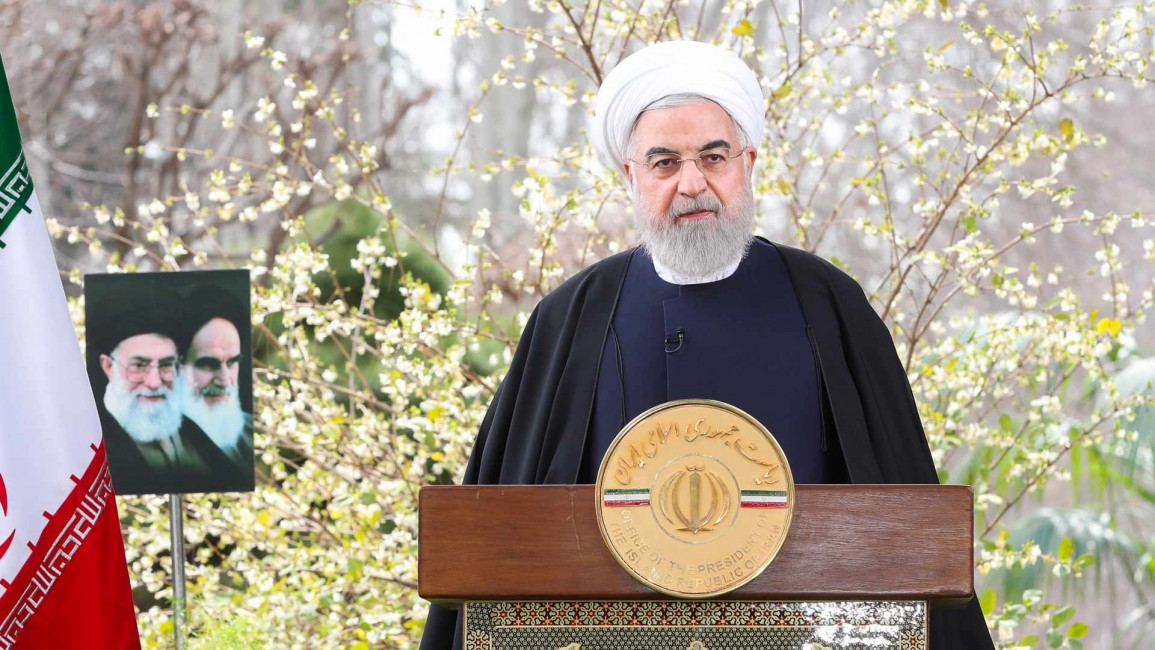Iran president expects coronavirus restrictions to ease 'within three weeks'
Iranian President Hassan Rouhani said on Saturday that restrictions to fight the coronavirus outbreak will be imposed for only two to three weeks, by which time he expects the crisis to be under control.
Iran "has to do everything necessary to return economic production to normal," he said in comments broadcast on state TV and shared by Reuters.
Rouhani also accused "counter-revolutionaries" of plotting to adversely affect Iran's economic production. Iran's economy has been under strain since US President Donald Trump withdrew from the 2015 nuclear accord and imposed harsh new sanctions.
Iran is battling the worst outbreak in the Middle East, with nearly 20,000 confirmed cases, and has been widely criticised for its slow response.
Iran's leaders shared upbeat messages marking the Persian New Year on Friday, vowing to overcome the coronavirus outbreak even as the Health Ministry announced 149 more fatalities, bringing the country's death toll to 1,433.
Supreme Leader Ayatollah Ali Khamenei, who has final say on all state matters, called the new year "the year of leaps in production" in Iran's economy.
|
President Rouhani also marked the new year, known as Nowruz, by promising a better economy. "We will put the coronavirus behind us soon with unity, with hard work and with cooperation," he said.
Most people who come down with the COVID-19 illness caused by the virus experience only minor symptoms and recover within weeks.
But the virus is highly contagious and can be spread by people showing no symptoms. It can cause severe illness, including pneumonia, particularly in sick or elderly patients.
More than 240,000 people have been infected worldwide. More than 10,000 have died, while more than 85,000 have recovered.
Rouhani has defended his government's response to the pandemic in the face of widespread criticism that officials acted too slowly and may have even covered up initial cases before infections spread rapidly across the country.
He also sought to highlight what he viewed as the achievements of the past year, including the downing of a sophisticated US drone and missile strikes on US bases in Iraq in retaliation for the killing of Iran's top general in Baghdad.
Rouhani assured Iranians his administration will prioritise health in the coming year and said it had stockpiled basic supplies.
Nowruz is a major holiday in Iran, when shoppers typically pack local markets and take extended vacations. Most shops are closed this year, and those merchants who are still working can be seen warily accepting cash or debit cards from customers in face masks.
WATCH: Iranians pelt oncoming cars with stones 'to stop COVID-19 transmission'
Khamenei issued a religious edict this week prohibiting all unnecessary travel and authorities have restricted travel between cities. After weeks of heavy criticism, authorities finally closed two major religious shrines in recent days.
Other countries in the region have imposed far stricter measures to contain the virus, including cancelling flights, sealing borders and forcing nonessential businesses to close.
Meanwhile, Iran released French academic Roland Marchal in an apparent swap. Marchal, who has been imprisoned since 2019, is due to arrive in France on Saturday.
French Prime Minister Emmanual Macron urged Iran to also release French academic Fariba Adelkhah.
Ahead of Iran's celebration of the Persian New Year starting Friday, authorities had released a number of international prisoners.
 |
Follow us on Facebook, Twitter and Instagram to stay connected



